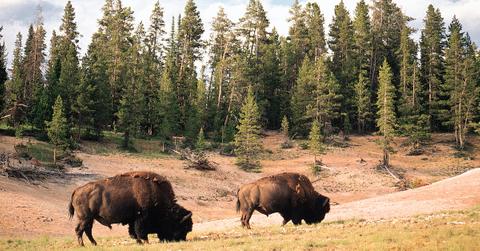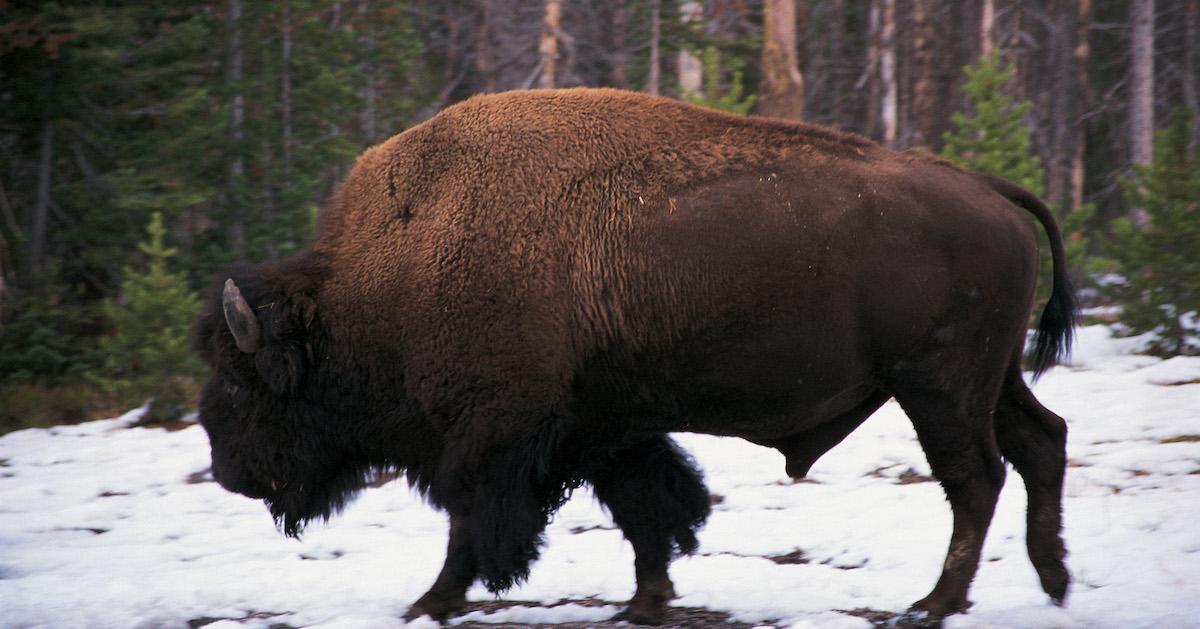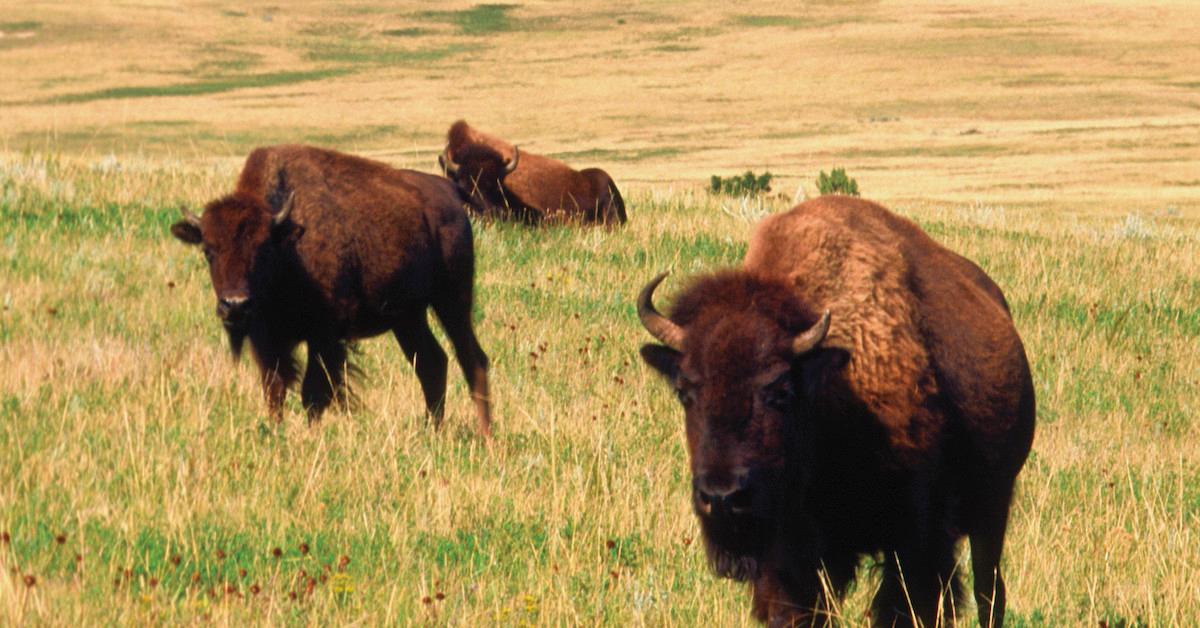The Fight to Protect Bison in Yellowstone National Park Continues
Published Jan. 19 2022, 11:13 a.m. ET

If you've ever visited Wyoming's Yellowstone National Park, you're likely aware that it's full of life. Just walking through, you get the chance to see anything from Grizzly bears to moose, almost making for an ethical safari right in the U.S. And although Yellowstone is generally a safe habitat for its animal inhabitants, one species, the Yellowstone bison, is unprotected by the government — despite the fact it should have been placed on the Endangered Species List years ago.
“It is concerning, to be sure, that over seven years have now passed since the 2014 petition was filed,” U.S. District Judge Randolph Moss wrote on Jan. 12. Moss requested the Fish and Wildlife Service to reconsider placing Yellowstone National Park's beloved bison on the threatened and endangered species list, despite the agency's decision several years prior to keep it off, according to Cowboy State Daily.
“But it remains unclear whether sufficient basis exists to proceed to the next stage of the ESA process, and in light of the substantial amount of work done to date, the Service should be able to answer that question promptly," Moss continued.
Keep reading for more regarding this ongoing debate.

Why aren't bison protected in Yellowstone National Park?
Since 2014, according to AP News, several organizations, including Buffalo Field Campaign and Western Watersheds Project, have fought to protect Yellowstone's bison. Although numbers are continuously dwindling, the beloved species is neither labeled threatened or endangered under the Endangered Species Act. Those who want to protect bison argue there are two separate groups in the park, and instead of having a 3,000 animal limit for the whole park, there should be 3,000 for each herd (a total of 6,000 animals).
The FWS, however, disagrees that there are two genetically different herds in the park. The government organization follows a different study, which states the herds have no genetic distinction. Therefore, the petition to expand protections was officially denied in 2019. It's unclear why the USFWS chooses to believe this other study. Judge Moss hasn't set a deadline for the FWS to respond, but both parties will be required to update the court within three months.
Annually, the National Park Service culls the bison herd for population management purposes, to supposedly prevent the spread of disease, but a study has shown many of these diseases are spread through elk — not bison. But many conservationists disagree with culling as a practice, and want to protect the species from climate change. Over the last five years, over 3,000 bison have been killed, according to Buck Rail.
“This is another important victory for Yellowstone bison. But it is important that this victory lead the U.S. Fish and Wildlife Service to ensure adequate protections for our national mammal,” Jocelyn Leroux, Western Watershed Project's Montana Director told Buck Rail. “Yellowstone bison, and the Central Herd specifically, need action now to reverse decades of aggressive government killing and harassment.”

Why is animal conservation important?
Animal conservation is important for a number of reasons. Conservation efforts make up for human mistakes, as well as our impact on the planet. We have created issues such as climate change, so it's up to us to protect species as the climate crisis makes it harder for life on Earth to survive.
Conservation also helps preserve ecosystems. If one animal dies out, it can affect other species. It can also lead to loss of habitat, and even deforestation. Therefore, it's important to do everything we can for species like these.